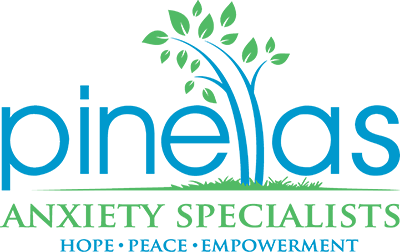Embrace Nature for Your Mental Wellbeing
We’ve all heard the phrase, “stop and smell the roses.” I often use our difficulty noticing the beauty around us, such as flowers or animals, as an example of how we get caught up in the busyness of daily life and miss important aspects of our surroundings. Learning to be mindful is a key goal of therapy, and it often helps us develop an appreciation and gratitude for nature as well!And it turns out that a study published in the Journal of Positive Psychology appears to confirm the benefits that nature has on our mental health. This will come as no surprise to those people who enjoy camping, fishing, or the beach. I’ve always felt like there was just something about being surrounded by nature that seemed to help release tension and the pressures of the modern world. I was excited to see this innate feeling backed up by actual evidence.
Attuning to Nature
The study broke participants into two groups that focused on either natural or man-made objects. The nature group asked subjects to document how they reacted as they encountered nature throughout their day. They were encouraged to photograph natural objects that captured their attention, whether they were plants in the office, grass poking through sidewalk cracks, or a stroll through the park.The other group of participants focused on noticing man-made objects. It seems like this group had it a little easier as I can notice probably 100 man-made objects as I sit at my desk writing this article!Of course, the question was whether there were benefits of being mindful in general, or if there was a noticeable difference in the effects of focusing on either man-made or natural objects. Between the two groups, a comparison was made regarding happiness, sense of elevation, and level of connectedness to other people.Researchers found that the subjects who paid attention to their natural surroundings experienced significant elevations across the board in the group that paid attention to natural objects! In fact, as few as five minutes of being attuned to nature was enough to show benefits.
What does this mean for you?
We live in a beautiful area with Clearwater Beach being one of the top-rated beaches in the country right in our neighborhood. Taking time to visit the beach or a local park (our family loves Wall Springs) is easy self-care that can help you cope with daily stressors.We haven’t been yet, but I’m hoping to take the girls camping down at Fort Desoto State Park. Can you really beat camping at the beach?Other great things the study found are that it didn’t take hours to reap the benefits, so you don’t have the excuse of not getting enough vacation days. In fact, even those who spent time attending to natural objects indoors experienced improvements.This means you can focus on a plant in your office, look at green space or the sun outside your window, or even notice a dandelion growing where it shouldn’t be possible. When you take time to notice it, you’d be surprised at the amount of nature that surrounds us.If you’re having a particularly stressful day, clearing five minutes may seem like an impossible task. But I wonder what would happen if you experimented and monitored what happened if you tried. Many people are shocked at how restorative it can be to clear our cluttered brains and just notice the beauty around us.I’d encourage you to spare a few minutes today to notice and embrace the beauty of nature that surrounds us. If you’ve ever felt you needed a good excuse to tell the boss that you were taking a short break for a walk outside, consider this your doctor’s note. I’d love to hear feedback on your experiences with this new sense of attention to nature!And if you’re ready to chat about how therapy might help you find better ways to cope with the anxiety or stress, please don’t hesitate to reach out!
De-clutter to Reduce Stress: 4 Tips to Cut the Junk
The Psychology of Clutter
You’ve probably heard of the new hit Netflix show Tidying Up with Marie Kondo. In the show, Marie enters the home of typical American families who collect too much junk and have no plan for what to do with everything.Of course, the family is always stressed and fighting more than they’d like, and there isn’t enough time for the kids, yadda yadda yadda. Marie then does her magic of helping the family identify what “sparks joy” while eliminating the things that don’t fit that criteria.Inevitably, the family is super appreciative and they let us know how much better their lives are after Marie’s intervention.
So why do we end up with so much junk?
America today is one of the wealthiest societies in the history of the country. We’ve all been raised with the American dream of getting good jobs and regularly upgrading all of our creature comforts so we don’t fall behind the Joneses next door.Planned obsolescence is the goal of technology companies, because they want us to feel the pull of the latest bells and whistles and that our 2-year-old iPhones just aren’t cutting it anymore.So many families have the spending power to spoil their kids with toys every time their at the store. Grandparents are more fluent than ever with online shopping so the Amazon boxes NEVER. STOP. COMING.I'm ashamed to admit that it's not uncommon that I order something on Amazon. See the box on the doorstep a couple days later. Realize I forgot what I ordered and get a little shot of dopamine-induced pleasure at the surprise. Followed by disappointment that it's just something for the house.All of this leads to more stuff entering our homes without ever having a plan for what to do with the old stuff. I mean, anyone else have the box of random cords in their garage from every electronic since 1999… just in case?
Clutter does increase our stress levels
There have been many studies on this subject that demonstrate a cluttered home is often a stressed-out home. The home filled with junk makes us feel a lower sense of well-being, have less of a sense that it is “home,” and can be an obstacle to happiness!Clutter actually increases the stress hormone cortisol. A study of mothers showed that cortisol spiked when they were engaged in the act of cleaning up after their messy little ones each day. Chronic cortisol release can increase sensitivity to stressors, and actually change the structure of the brain!Having piles of junk everywhere makes it really hard to focus on one task. Just personally I know that my trip to the kitchen to get milk more often results in cleaning 2 dishes, tossing some stuff into the recycling bin, and me standing perplexed about why I entered the kitchen in the first place.Having too much stuff can even affect your children’s development. The lack of structure that often accompanies clutter and the easy availability of distraction can actually stunt the development of emotional regulation.
What to do about your clutter
Now that we know all of the problems associated with a cluttered home, what can we do about it? Listen to Marie Kondo! No, seriously, she does a great job in her approach to helping families make progress on their clutter.
Know your why
What is the reason you want to declutter? What benefits can you expect after decluttering? When you can keep those long-term benefits in mind, it can help keep you going during the sometimes mind-numbing work of going through all your possessions.
Have a plan
Marie doesn’t just sit the family down and tell them to just fix everything. She has a specific plan that she walks the family through with explicit goals to accomplish each week. It’s easy to get overwhelmed when we look at the huge mess, so it’s important to start in one room and complete that task before moving on. By completing those smaller goals, you feel a sense of accomplishment and begin to see that there is hope you can achieve the larger goal.
Show gratitude
At first I chuckled when Marie asked Rachel to hold an article of clothing, feel whether it sparked joy, and then thank it before adding it to the discard pile. However, I pretty quickly came to the realization that this small act actually helps us to show gratitude for all that we have. Every item in our possession has served a purpose and can allow us the opportunity to show appreciation where we may have taken things for granted in the past.
Develop processes and remember how much work it took to declutter
Once you’ve gotten rid of those things that weren’t contributing to your life, you want to create a system that will allow you to maintain the newly decluttered lifestyle. It will do you no good to go back to tossing things into a junk drawer. Notice where your biggest problem points were and come up with a daily plan for handling those situations. And also take a moment to realize how much time it took you to declutter so that you never have to do it again!
Decluttering your home might seem like just one more time consuming thing to add to your plate. However, the positive return on investment is almost immeasurable. From lower levels of the stress hormone cortisol, to greater appreciation of the things you use, to improved quality time with your family, decluttering can produce significant positive changes in your life.I’d love to hear about your experiences with going from cluttered to a decluttered lifestyle!Resources: http://alliecasazza.com/https://konmari.com/
Fatherhood: Expectations vs Reality
I was honored to be asked by Dr. Zack Isoma at Harbor Psychology to write a guest blog on my experience with fatherhood. It was a far more difficult adjustment than I ever expected, and I finally realized that it wasn't just me who had that experience. This post is intended to help other fathers who are critical of themselves over the challenges they are experiencing in adjusting to this wonderful... and frustrating role.
Panic Attacks are THE WORST
I’ve had one panic attack in my life, and I’m thankful it came during grad school after I had already learned about them so I didn’t freak out too much. We were about 2 months out from the birth of our first daughter taking a birthing class at the hospital.Everything was going swimmingly… until they started to talk about ALL THE MILLION POSSIBLE THINGS THAT COULD GO WRONG FOR BOTH THE BABY AND MY WIFE.Now my wife’s a nurse who has wanted to be a mommy since she was 12, so this was nothing for her. I, on the other hand, didn’t do so hot.Well, actually, I got really hot. And sweaty. And pale. And felt the world swim. Like I was going to pass out. Or maybe I was having a heart attack. Could I make it to the bathroom? Nope. Definitely would pass out on the way. Wait. This feels like that panic attack thing I learned about in class. Oh crap.I don’t think I’ve ever felt so uncomfortable in my life. Thankfully that was my one and only experience with panic.For millions of others, panic attacks are a regular occurrence with little predictability. It could be at the grocery store, or at work, or in the shower.If that sounds like you, then I am so sorry you’re going through that!It. Is. Awful.But I’ve got good news! Panic attacks often respond well to treatment, and you can start on your own!
What’s happening during a panic attack?
Panic attacks follow a cycle that begins with a trigger. It could be something in your environment, or it could be a thought, or even in response to your own body.Once the trigger happens, you notice that something is happening and begin to worry. That worry increases your anxiety, which causes your body to pump out fight or flight hormones.Those hormones prepare your body to fight off a danger, or run away from it. They cause your heart rate to increase, your breathing to become rapid, your muscles to become tense, you sweat more, and your vision narrows. Sound familiar?Of course when your body reacts so strongly, you begin to worry even more and even start to believe that you’re dying, or going crazy, or losing control, etc. That scary thought makes you worry more, and have more anxiety, and have an even stronger bodily reaction.And that cycle spirals until the panic attack completes itself, usually around 15-20 minutes. And then you’re exhausted.
The good news about panic attacks
Hard to imagine there is anything good about these scary, uncomfortable moments. I won’t try to persuade you they’re beneficial, but I do want you to know that they at least AREN’T HARMFUL!Though it feels like you’re having a heart attack, there’s nothing unusual happening to your heart. While you might feel like you’re going crazy, your mind is still completely sane. Even the thought of passing out is highly unlikely to actually happen.They are uncomfortable, but not dangerous.What that means is you don’t NEED to DO anything during a panic attack. It’s okay to let it pass over you like a wave without fighting it. In fact, fighting to make it stop often makes it even stronger!
The problem with avoidance
Most people who know specific triggers for panic attacks do everything they can to avoid those triggers. Ironically, avoiding those places or situations makes your anxiety that much higher when you encounter them unexpectedly and can lead to stronger panic attacks!Avoidance can be really problematic as a control strategy because after enough time goes by, people with panic disorder end up avoiding more and more people, places, or situations. Their world shrinks to where they’re only comfortable at home.That is not a recipe for a meaningful, fulfilling life.
How to handle panic attacks
Remind yourself that it’s not dangerous, just uncomfortable. You’ve done plenty of uncomfortable things before.
Try to stay grounded in the present moment by focusing on things around you. As we already said, it’s not dangerous so focusing on your worry of having a heart attack isn’t necessary.
Slow, deep breaths can help (for some people this makes things worse, so stop if you have that experience). You’ve already acknowledged you’re safe, but uncomfortable, so deep breathing can help you feel a little more comfortable.
Try to let the panic pass like a wave while you continue to do whatever you were already doing. As I noted earlier, you don’t need to do anything to make the panic attack pass. That will happen on its own so you can either calmly let it pass, or continue to work.
If it goes down and then comes back, just keep using the skills listed here. Nothing is wrong, that is not unusual, you will still be okay!
Keep a journal where you record the experiences you had during the panic attack. This helps you to not avoid thinking about it, and also to track the intensity over time.
There you have it, six tips to getting through panic attacks. From my personal experience I know just how scary they can be, but I also know they don’t need to control your life.I hope that these tips will help you handle your next panic attacks a little better. But if you just can’t seem to do it on your own, please reach out for a free consultation.I’d love to chat with you about the different ways we can help bring a little peace back to your chaotic world.
Mommy Burnout: Supermom Complex
Supermom complex
We have an epidemic of supermom complex in our society. You may have never heard of it, but it can be a severe disorder that negatively impacts physical and mental health, as well as relationships. Supermom complex is when mom feels the need to be excellent at… everything. Parenting. Cleaning. Work. You name it and it must be perfect.
Isn’t perfection a good thing?
I’m not going to lie, it would be amazing to be perfect (I’m sure my wife wishes I were a little closer to perfect as well). That being said, my life became significantly easier when I realized just how unlikely I was to achieve perfection. And by that, I mean it is impossible. Perfection becomes a huge problem when it comes at the expense of our families and our own self-care.
Tradeoffs – Life is filled with tradeoffs. When you choose to spend your time on one thing, you are not able to spend it on another. Spending your time to ensure perfection at work means less time for family.
Perfection is subjective – Your definition of perfect is different from my definition (sorry, honey!). Supermoms define perfection at a level that is literally unattainable because it’s either all perfect or it’s wrong.
Emotional consequences – Not reaching the level of perfection supermoms require often makes them feel like crap about themselves. Our mind starts to tell a lot of negative stories when we don’t live up to our own expectations. I can’t tell you how many supermoms have told me that, before bed, their mind says to them, “I’m not a good mom.”
Thankfully, there are ways to minimize the effects of supermom complex!
Recognize the Problem
The first step in addressing any problem is identifying that a problem even exists (take the mommy burnout quiz!). Do you feel constantly exhausted? Ever fantasize about getting a break from your spouse, kids, and housework? Do you often wonder how other moms do it all? If these questions are hitting a little close to home, I’m sorry to break the news to you, but you might be a victim of supermom complex.
The 80/20 Rule and Supermom
You may or may not have heard of the 80/20 rule. In business, 20% of your efforts will be the ones that return 80% of your profit. It’s key to identify those actions that fall into the 20% that achieve the highest return on investment to run an efficient business. This rule is also part of the reason why perfectionists struggle so much. The first 80% to complete a task will only take around 20% of the time and effort. However, as a task goes above the 80% perfection mark, it requires significantly more time and attention to complete. The final 20% as you approach perfect completion will take 80% of the total time and effort for the task! So, supermom, is a 20% improvement worth spending 4x as much time and effort? It can be helpful to remember the refrain, “perfect is the enemy of good.” This especially rings true when it comes at the expense of our own self-care or quality time with our families!
Use the 80/20 Rule to Your Advantage
While it’s a difficult adjustment for supermoms to make, the 80/20 rule can be used to make our jobs as parents a little easier in two ways. First, identify the 20% of tasks that will give you 80% of results with your family or your own self-care. Maybe making time to chauffeur to dance class or soccer games gives you quality time together in the car. Perhaps getting your morning exercise provides a bigger payoff than making the perfect breakfast spread for the family. Only you will know which activities will have the best return on investment.The second way to apply the 80/20 rule is giving yourself permission to slouch 20% of the time. Maybe you read books to your child five nights a week, but two nights you allow them to watch a movie. If it’s important to have fresh, organic food, do that 80% of the time while allowing a 20% break for pizza and soda.
Allowing yourself permission for imperfection in some areas helps prevent you from failing in the most important areas.
If you’re a supermom, then I know you’ve read this far because you could never let an article go only partially read (ha!). These are only a few of the ways you can start treating supermom complex, but some of the most important as well. I hope you’ll take a few moments to consider and prioritize the numerous tasks in your life. It only takes a few minutes to make small changes that focus your time and effort on those activities that provide you and your family the greatest satisfaction. And if you want a little extra help, please reach out and schedule a consultation. I'd love to chat with you about the ways we can work together and begin bringing a little peace to a chaotic world.
Connection is Everything: 7 Tips to Build New Relationships
Our family is relatively new to Florida. It was July 2017 when we unloaded the POD and realized quickly that, despite the Washington, DC area being known for its heat and humidity, this was a whole new ballgame. Lift a chair and you sweat. Set the chair down and you just keep sweating.Thankfully, we had family who travelled to help unpack for our new lives in Florida. My wife was sure we moved to paradise, being just minutes from Clearwater Beach. It was a great week setting up, exploring the area, and especially heading to the beach together as a family.Then the out of town family left.It’s safe to say we underestimated the challenge of moving to a place where we had no family or friends or any connections at all really. Having two kids under the age of 3 meant we were playing on difficulty level HARD, to say the least.Making friends during the parenting stage of life isn’t the easiest thing in the world. Everybody seems to have their routine already in place and adding new people to the mix can throw things off. We’re all so busy with jobs and running the house that committing extra effort towards making a connection with a new person can seem like too much work. Aren’t our plates busy enough as it is?It didn’t take long for us to realize, we really can’t do this on our own.Social connection is the lifeblood of humanity, and we were struggling to find it despite spending (too much) time on social media.
Social Media
Facebook, Instagram, Pinterest, Twitter, Snapchat, FaceTime. There are more ways than ever to connect with people these days. If you see a recipe that I’d like, you don’t need to wait a month until we bump into each other at the grocery store, you just text me the link. But seeing your nephews grow up through Instagram pictures isn’t quite the same as getting to wrestle with them in person.In spite of having a million and one ways to communicate, it’s easy to feel more disconnected than ever from the people we care about. We text each other instead of calling. We allow Facebook comments to stand in for coffee dates. We compare others’ highlight reels to our behind the scenes bloopers.While it’s great being able to see what your tangential connections from high school are up to these days, we’re losing some of the emotional connection in our relationships. Texting “I love you” to your spouse just isn’t the same as saying it while embracing and gazing into their eyes. Let’s resolve to use social media to complement our real-life connections rather than supplement them!But for those folks like us in a new town, social media can also help maintain old connections and find resources to develop new friendships!
Lessons learned
You can’t depend on others to reach out – It may be terrifying to make the first move (this sounds like I’m talking about dating ha!), but take the leap and invite, invite, invite. We tend to be more shy and introverted, so this has been a challenge. But even when the meetings haven’t turned into long-term friendships, they have been rewarding.
People are busy, so several declined offers doesn’t necessarily mean they aren’t interested – Piggybacking on the first lesson, try not to get too discouraged when people aren’t able to accept your invitations. You’re trying to break into established routines and once you do, it will get easier.
Communicate regularly with your support system, no matter how far away they are – Since you don’t have new friends yet, lean on those people you can trust. They may not be close enough for a hug, but FaceTime and Skype make virtual hugs a little less awkward. Feeling socially isolated can increase stress levels and lead to depression, so it’s important to be open with those who care.
Take advantage of the positive aspects of online connection (e.g. Meetup.com, Facebook parenting groups, Facebook church groups, Tampa Bay Moms Group etc.) – Social media isn’t all bad! It makes it easier to find others who share similar interests, or may be in the same situation as you. Again, put yourself out there and attend events to get face time and begin making connections.
Be patient, it’s a marathon and not a sprint – If you’re planning on sticking around the area for awhile, you are going to want quality friendships. If it takes awhile to find people you truly want to open up with, it will be worthwhile when you need support (hopefully a long time down the road).
Say yes whenever you can, even if you don’t feel like it – Unless you’re already booked, or it will really screw up your kids’ nap schedule, say yes to every event possible. Finding friends, like dating, is a numbers game. You need to meet a bunch of people to find the few who will fit with you.
Change your mindset – You have the opportunity to organically develop friendships that fit with your current stage of life. You aren’t stuck with toxic friends just because they’ve been there for years. You don’t need to try and make awkward small talk with a friend whose life path or values have diverged from your own. You can have a list of traits you’re looking for (or that you’d like to avoid) so your future friend cohort will fit perfectly. Perceiving the situation as an opportunity for growth rather than sad loneliness can make all the difference in your mental health.
I love to give a happy ending to the tale, but that's still a work in progress. We’re still learning lessons and building a social network. But we’re taking our own advice and reaching out more consistently and starting to hopefully see the beginning of what will eventually blossom into friendships. If you’re in a similar boat or want to share your own experience as a newbie in Florida, I’d love to hear from you. And if the process seems too overwhelming and stress inducing, then please reach out for a consultation. I would love to chat with you about paths that might be most helpful for you!
Mommy Burnout: How Values Can Help
When we think of overcoming stress, we typically think of cutting things from our to do list, learning strategies to help us relax, or dealing with the negative thoughts that run through our heads. All of those are useful tools in the fight against feeling overwhelmed, but they’re not the only things. They are missing a key ingredient: values.I would consider that list to be tactics that we use on the front lines. Identifying our core values provides the overall strategy. Values are the big picture. They define how we want to live our life. They are the compass heading that guides us in making small and big decisions alike. Being a parent is stressful and often focuses our attention on the minutiae so we neglect the big picture.Considering I never explored my own values until graduate school, it’s no surprise to me that many of the people I work with need a little help figuring out what I mean when I say, “values.” The good thing about that is the significant progress that often results from a few discussions and some reflective thinking!Once we recognize our core values and begin to change our actions to fit within that context we begin to feel that our lives are meaningful again.It might be shocking, but believing that you are contributing to a meaningful life is pretty effective at lowering perceived stress. This shift in mindset (that stress is a result of living out your values) can mean the difference between embracing stress as a force that is pushing you towards growth, or allowing stress to define you in a negative way.
VALUES: THE THINGS YOU WISH YOU WERE DOING BUT PROBABLY AREN’T RIGHT NOW
Dr. Russ Harris defines values as “desired qualities of behavior.” Vague enough?A simple exercise can help people understand the concept of values, since it is difficult to define.I want you to look ahead to your 80th birthday party. You are the person of honor and your family and friends have gathered to celebrate the life you’ve lived. Everybody will speak a bit about you and the ways you’ve impacted them, and the community around you.Who do you want to speak? What do you want them to say about the way you lived… the way you treated family… your work… what you did for fun… your spiritual life?The things you’d want them to focus on gives you a window into the values that you personally would consider contributing to a meaningful life.When thinking about your values it’s important not to fit them into society’s vision rather than your own. For example, just because society seems to value and pressure people to work long hours to climb the corporate ladder doesn’t mean that is YOUR value. You may place more importance on family and civic involvement and have no desire to become a manager.And that is okay! The important things is defining the things that are truly important to you in the different areas of life.Now that you’ve defined your values, what do we do with it?
Using Values to Create Meaning and Reduce Stress
Psychologist Kelly McGonigal, PhD identified that the PERCEPTION of stress is what leads to many health-related complications (e.g., obesity, mortality rates). Viewing stress as a problem is actually what causes health issues. While viewing stress as fueling growth shows no similar negative health consequences!And, of course, we change our perception of stress by giving it meaning through our values!When we see our actions as contributing to a bigger plan we’re less likely to feel burdened. In fact, trivial or repetitive/boring tasks can provide a sense of pride when we feel they are one small part of a puzzle that we value.Example time. Do you enjoy cleaning toilets? I certainly do not. I know it needs to get done because otherwise the bathroom will be nasty, but it’s not something I relish. In contrast, a housekeeper in the White House may view that boring task as one small piece of taking care of the president’s family that allows him to make big decisions.So take a few minutes to consider everything on your to-do list. How does each item contribute to living out your values? Reflecting on the bigger picture allows you to take pride in small accomplishments or milestones along the way.If you need a little guidance in identifying your values or figuring out what changes you need to make to live a more value-congruent life, please reach out for a free consultation. I’d love to chat about how we can get you closer to living a meaningful life.
The Do Nothing Challenge
We constantly feel pressured to add things to our schedule. Society seems to reward being busy and punish anyone who takes time for themselves. No wonder so many people neglect their own self-care when it would lead to negative judgments from others!
You’re encouraged to work too much, schedule your kids in too many activities, and attend too many social events.
Everything FEELS so important.
How will your son ever play varsity baseball if he doesn’t play every season after the age of 5? What will your friends think if you tell them you’re taking some time for yourself?
And when you do have down time, I’m guessing it’s spent keeping up with social media, reading the news, or engaging with your phone in some way. I know this struggle personally!
We constantly feel pressured to add things to our schedule. Society seems to reward being busy and punish anyone who takes time for themselves. Moms are expected to put the family above all else. No wonder so many people neglect their own self-care when it would lead to negative judgments from others!You’re encouraged to work too much, schedule your kids in too many activities, and attend too many social events.Everything FEELS so important.How will your son ever play varsity baseball if he doesn’t play every season after the age of 5? What will your friends think if you tell them you’re taking some time for yourself?And when you do have down time, I’m guessing it’s spent keeping up with social media, reading the news, or engaging with your phone in some way. I know this struggle personally!
Why do we feel this need to fill every minute of our schedule?
1. Society has taught us that doing nothing means we’re lazy.2. We only feel good about ourselves when we’re productive and checking things off our endless “to-do” list.3. We see everybody else doing it, so that means we should too.4. Engaging in activities, even pointless activities, can keep us distracted from emotions like sadness, anxiety, or guilt. And if we just keep on doing, maybe those emotions will even go away.5. We’ve never learned how to do nothing so it’s uncomfortable.
Consequences of Doing Too Much
No matter what the reason for staying busy, the research has shown that little good comes from it. The chronic stress of always being on the go can lead to physical illness and diminished mental health.It’s probably no surprise to you that it can also lead to feeling exhausted and overwhelmed… All. The. Time.We always feel behind and never actually catch up. The to-do list seems to get longer even as we’re being productive.That busyness can interfere in relationships as well. How many times have you neglected date night because of the kids’ activities? Is quality time with your children spent mostly in the car?Relationships are unbelievably important to our health so consider whether you’re spending quality time or quantity time with those people you value the most.
Giving Yourself Permission to Do Nothing
We often jokingly challenge our 3-year-old daughter to quiet contests. At times it feels like the only way to get her to stop talking! And let me tell you, it’s a challenge for her even when it’s only for one minute.I’m going to offer you a similarly difficult challenge. When you’re done reading, or another time today that’s more convenient, force yourself to do nothing for five full minutes. It may sound easy on paper, but I’m betting it will be a true challenge in the moment.Use those five minutes to focus on your breathing. To notice things in the world around you that you typically take for granted. Scan your body and notice if there are any sensations, pains, discomforts, or tensions. Sit in stillness without the pressure of doing.Doing this for a few minutes every day can have surprising benefits to your physical and mental health. No, it won’t make all your stresses or anxieties disappear, but it’s one small piece of self-care that can help you begin to take back control of your life again.If you're feeling the stress of always being on the go and need a little help to slow down and overcome those challenges, please reach out and schedule a free strategy call. I have a few slots open in my practice and I'd love to help you reach your goals.Don't wait, start here
Are Kids Like an Ancient Torture Device?
The answer is yes. Or no. Or it depends on the day?
Okay, so this one might get me into big trouble. Let me start out by saying that kids are awesome and I love my two little munchkins more than anything.
Now that that’s out of the way… are kids like Chinese water torture?
If that question horrified you, I apologize. It’s just a comparison that popped into my head one morning as my un-caffeinated brain was trying to keep our girls occupied when they had woken up way before the sun.
Are Kids Like an Ancient Torture Device?
The answer is yes. Or no. Or... it depends on the day?Okay, so this one might get me into big trouble. Let me start out by saying that kids are awesome and I love my two little munchkins more than anything.Now that that’s out of the way… are kids like Chinese water torture?If that question horrified you, I apologize. It’s just a comparison that popped into my head one morning as my un-caffeinated brain was trying to keep our girls occupied when they had woken up way before the sun.Most of us are mature enough to admit that we can love our children very much despite them being overwhelming, and stressful, and worry-inducing at times.There are moments they absolutely melt your heart, and then there are the times you wonder why anybody would ever willingly have more children. Sometimes those moments are literally 10 seconds apart.
What is Chinese Water Torture?
Chinese water torture is an ancient torture method where you are restrained so you can’t move and then you’re placed below a device that slowly drips water onto you.Doesn’t sound so bad, right?On a hot day, this might even sound pleasant! Who wouldn’t want cool, refreshing water during the heat and humidity we experience from May to October?And in this torture, a few drips aren’t a problem. They don’t hurt. It’s not like it’s drowning you. Nobody is poking you with anything.You. Just. Can’t. Move.After some time passes, you begin to have some discomfort. Maybe a drip caused an itch. Well, you can’t move to satisfy the itch so your mind just focuses on it.After enough time passes, you realize that you have no control over your environment.Eventually, it gets to the point where you go mad because you just want the water to stop dripping on you. It will never stop until the higher powers decide to stop it.Your lack of ability to control your surroundings can actually make you go crazy.
How does this apply to our kids?
During my brilliant, or crazy, morning epiphany, I arrived at this comparison because I didn’t find any single aspect of parenting to be rocket science. Yet the entire thing could be maddening.We have two girls under the age of four. Our oldest is only now starting to get into the “why?” phase, so I still haven’t even had to try and explain the meaning of the universe.I don’t need to run into burning buildings to save people. I don’t need to solve impossible mathematical equations.Overall, it’s not that hard to meet their needs… right?I mean I just plop some food down in front of them during the appropriate times. Ensure they’re drinking enough. Make sure all potty aspects are addressed. And watch them closely enough that they don’t do something to seriously harm themselves or burn the house down. It sure sounds easy enough… of course, the devil is in the details!Having one drip of water going down your face isn’t a big deal, but the inability to control your environment literally makes you go crazy after enough time passes.
My big realization was that while no one aspect of raising kids requires a college degree, you, the parent, have lost most of the control you once had over your life.
I was feeling such frustration that morning that I didn’t know how to explain. The kids weren’t doing anything defiant. They were actually playing pretty nicely together, so why did I feel so agitated?My ability to control my day was gone. I could not sleep in if I wanted because these kids needed me to watch them. I couldn’t watch an episode of Parks and Rec or read a book.It finally dawned on me that once you have kids, all those little things the kids require quickly add up to something that can be pretty overwhelming. You have a new boss who has taken control.And if we as parents don’t do something, we too can go mad just like the person subject to Chinese water torture.
How do we Avoid Going Crazy as Parents?
Here are 3 things you can do to avoid going crazy from lack of control.
Schedule self-care activities It’s important that we don’t let our kids completely define our identity. You were a person with interests and hobbies before kids, and it’s crucial that you find some way to stay connected with the previous you. Even as a single parent, there are creative ways to find some time for yourself.
Remember your values While I discussed the overwhelming nature of having so little control even though what you’re doing on a daily basis isn’t “difficult,” that perception of overwhelm can be reduced by stepping back and looking at the bigger picture. I bet you have designs on your children growing into well-rounded, productive adults someday? Knowing those factors is identifying your values. I know for me it’s maddening to feel stuck communicating at a 3-year-old level all day, but remembering that every little bit of teaching and modeling of good behavior is helping Mary develop into that future adult helps me stay grounded.
Find little winsTo help yourself believe those little things are working towards the long-term goal, it’s helpful to look for small wins along the way. If your kid didn’t hit her sibling in frustration when she would have one week ago, give yourself a pat on the back. If your son remembered to flush after using the bathroom, give yourself (and him) a big high five. Recognizing those periodic victories is helpful to prevent you from feeling burnout like the movie Groundhog Day. There is always progress, it may just be slower than you would like.
So, to wrap up, I’d appreciate if you didn’t tell all your friends that this weird psychologist guy said that kids are terrorists who torture us. But maybe you can share this blog post with them, so they can get some context to go along with the click bait title 😊If you’ve been struggling and feeling like the kids are running the show, please reach out for a free strategy call. I would love to hear about your struggles, and help you see that there is hope. I have a few spots available in my Palm Harbor therapy office, so please give me a call at 727-498-1809, or click the link below to schedule.



















